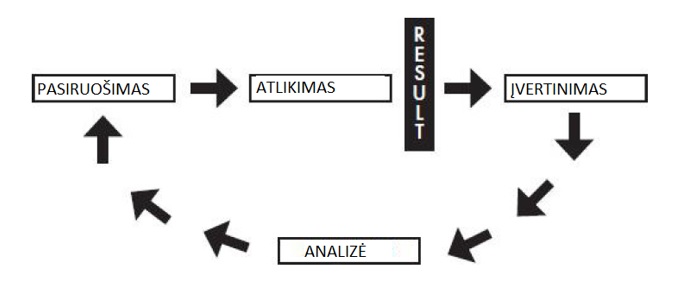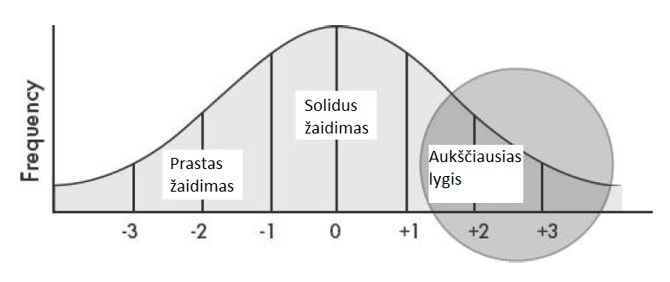Process model systematizes naturally recurring elements in poker so that they can be applied using the Adult Learning Model (SMM) and “worm” principles. The ultimate result is consistent play at the highest level, along with stable psychological and technical improvement in poker. The process model can be applied to an individual hand, session, tournament, month, year, or career.
The process model is not a new invention; it provides a certain order to things you already do, creates a foundation for mastery, enhances results-oriented thinking, and ultimately leads to consistent play.
The process model consists of five interworking parts:

- Preparation/Warm-up: what you do before the game. Whether it's planned, random, or nothing at all
- Performance: the poker game itself
- Results: the outcome of the game
- Evaluation: reviewing the result immediately after the game
- Analysis: active work to improve the game
The process model can be applied to any work, performance, or presentation. Until now, you have used it in various areas of life—sports, dating, music, art, writing, business, and of course, poker. Even if you didn't realize it, in some way, you have used the process model in your life.
Here is a more detailed look at the process model applied to professional American football and poker:
Preparation/Warm-up
In professional football, preparation starts immediately after the game and ends just before the next one. Throughout the week, players and coaches review game tapes, lift weights, analyze opponents, formulate and practice strategies—all to prepare for high-level play and win. On game day, coaches and players follow a defined routine that helps warm up their bodies and focus their minds, reviewing their tactical strategies to be fully prepared to compete. They repeat certain game elements, listen to music, check their gear, and motivate each other.
Although the details in poker differ, the goal of preparation remains the same—to be ready for the best performance and win. Preparation is important partly because poker has a range of game quality (bell curve). Every time you sit down to play, you can perform excellently or terribly. Preparation is a way to increase the likelihood of performing near your potential (the right side of the curve) and reduce the chances of poor play.

Preparation increases the likelihood of a good performance.
How you prepare depends on personal choice, based on overall game goals. There are no rules dictating the ideal preparation; ultimately, it's about doing what feels best for you.
Some tips on how to prepare for the game:
- Review your long-term goals and set goals for the session
- Review your list of common poker mistakes
- Review your psychological game improvement strategy
- Deep breathing, meditation, and visualization
- Listening to your favorite song
CLIENT STORY
Dusty “Leatherass” Schmidt $3/$6 – $25/$50 NLHE
PokerStars Team Pro Member
Author of the books: “Don't Listen to Phil Hellmuth” and “Treat Your Poker Like a Business“
Before working with Jared, I never warmed up before a poker session, making me vulnerable to the effects of a downswing. I never wanted to feel down during a bad period because it made me act foolishly, and I never liked fools. So together, we developed a pre-game routine that prepared me for bad periods.
Warming up is essential. I always understood how critically important warming up was before a golf tournament. In fact, I never even considered not doing it. Now I feel the same way when I play poker. A great example happened recently when I registered for several waiting lists without properly warming up. Tables with open seats started popping up, which I couldn't miss. I thought, to hell with the routine, and started playing.
Within the first 5-10 minutes, my hand on the mouse started shaking. From my years of experience, I know I tend to get nervous when I don't know what I'm doing. Usually, I'm quite relaxed, but that time my hand started shaking because I wasn't mentally prepared to get so many terrible cards. I didn't play as well as I could have, and the entire session was a big loss. No matter what happens, I always warm up before a session now.
This series of articles is based on Jared Tendler's poker psychology book: “The Mental Game of Poker”. Those who want to purchase the original, which is in English, can do so at amazon.com





